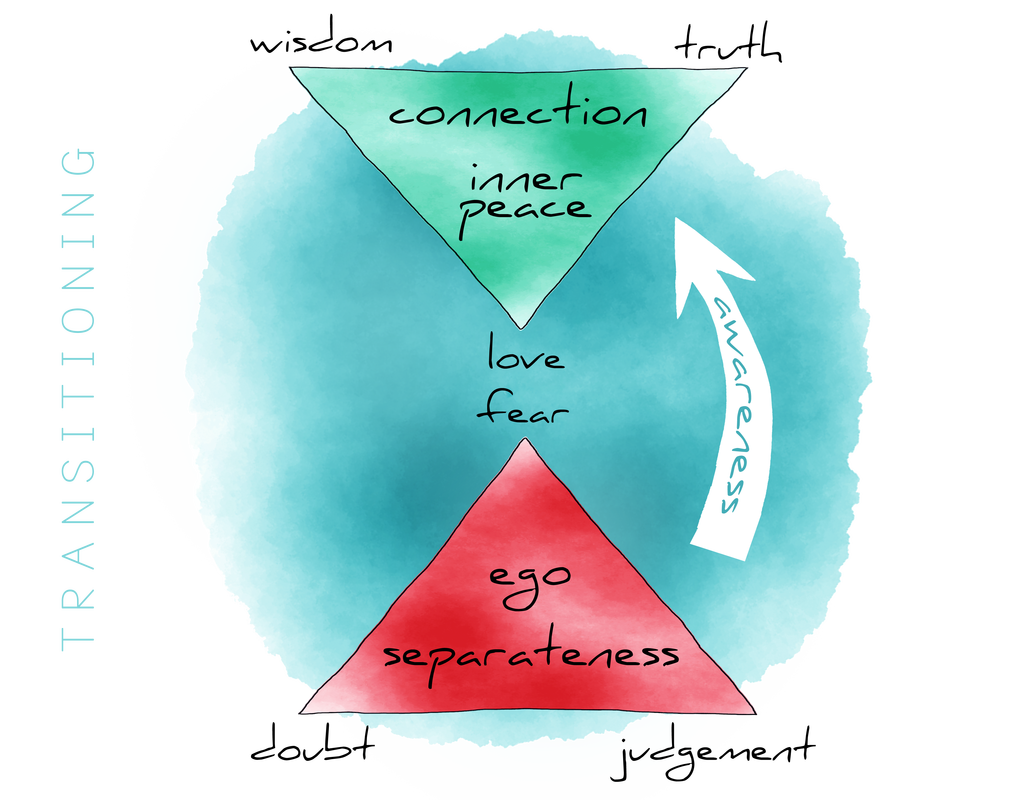Peaceful Parent, Confident Children
Parent with Awareness
Model of Conscious Intent
Part III: Transition Strategies
|
1) Non-Judgement ~ Choose the Love Based Triangle
|
2) Set up the Connection ~ Do Not Take Things Personally
- Body language, proximity, softening eyes, eye contact, touch, demeanor, ‘love you’, express affection and acceptance.
- Moving the body helps the mind shift perspectives.
- It is not about you, it is about the behaviour or opportunity to learn.
3) Discern Illusion versus Reality ~ Take Time to Gain Understanding
- Ask questions and paraphrase.
- Create emotional safety or acceptance for the child.
- Even if they have done something wrong, listen carefully.
- Whether coaching or praising the child, the energy of unconditional love is the same.
- Decide whether the situation is life threatening or morally threatening.
- “Is it true?” and “How do you know it is true?”
4) Detachment ~ No agenda
- Attachment to outcomes creates the ‘Victim – Blame – Defense’ reaction.
- Be open to what is, love and trust that whatever is showing up is for your benefit.
- Trust in the process and be present or mindful in the journey.
5) Seek Solutions ~ The Art of No Blame and Natural consequences
- Blame switches focus from solutions and learning to fault finding and punishment.
- Natural consequences often happen organically.
- Usually kids need consequences stated clearly and then consistently applied.
- The more the child is involved in the construction of consequences the better the learning.
- Consistent follow through is essential regarding discipline, it is about learning not punishment.
- Often the solution is right in front of you rather than creating a ‘separate’ consequence.
6) Fake It till You Make It
- We do not need to feel calm to act calm, the action leads the feeling.
- This is a process where we incrementally learn, failure and succeed that ultimately leads to greater self-awareness.
7) Avoid Assumptions
- Making assumptions becomes problematic when we are attached to believing that our assumptions are correct.
- Assumptions occupy the otherwise open mind, rendering our listening and receptivity to a judgemental imagination.
- Asking non-judgemental questions can open doors of communication.
“The relationship that you create with your child profoundly affects your child’s confidence and inner peace.”


